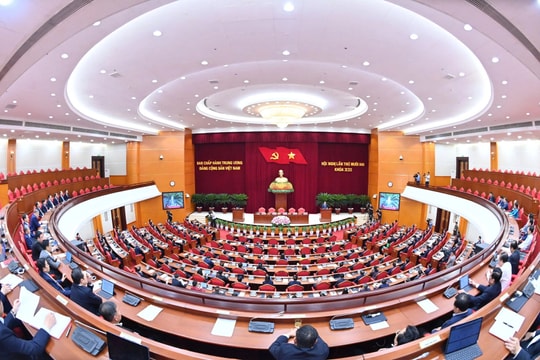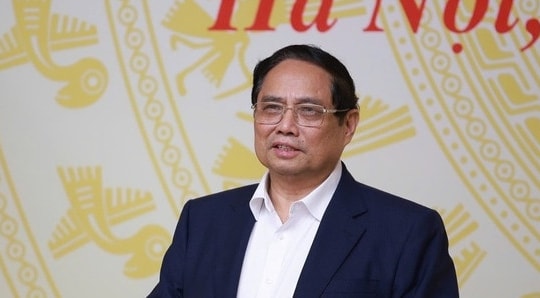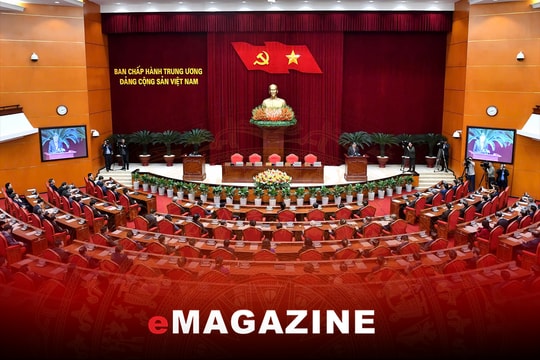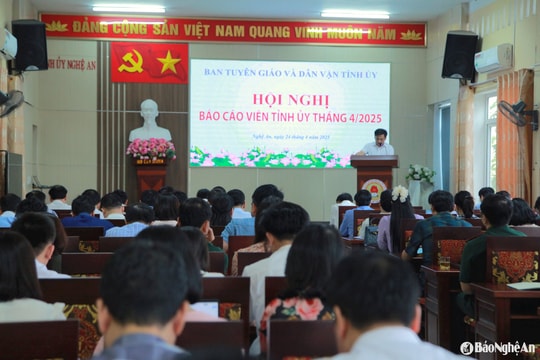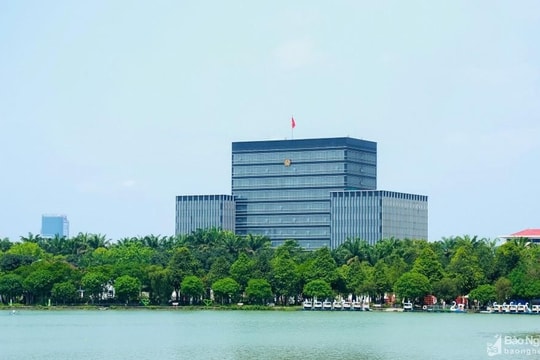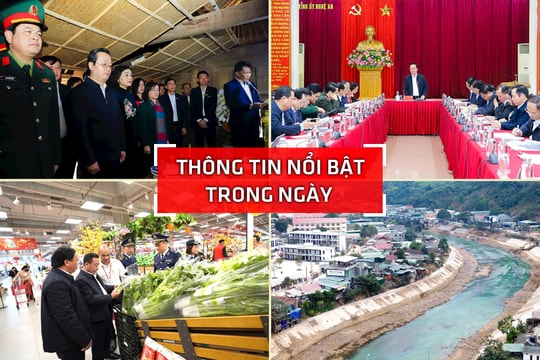Professor Dang Hung Vo: Escaping the beaten path of thinking in amending the Land Law
(Baonghean.vn) - The Land Law must unlock the potential value in land resources, sharing that value fairly between the State, project investors and land users as required by Resolution 18, and should not just be stuck with the mindset of the State's power to reclaim land.
For the past 30 years since the 1993 Land Law, the Land Law has been amended every 10 years, each amendment based on development requirements set out in a Resolution of the Party Central Committee. Resolution 26-NQ/TW of 2003 (9th tenure) oriented the development of the 2003 Land Law to continue innovating land law to serve the country's industrialization process. Resolution 19-NQ/TW of 2013 (11th tenure) oriented the development of the 2013 Land Law to continue innovating land law to turn our country into an industrialized country by 2020. Recently, Resolution 18-NQ/TW of 2022 (13th tenure) oriented the development of the amended Land Law to further innovate land law to turn our country into a developed industrialized country with high income by 2045.
 |
View of a corner of Vinh city center. Photo: Devi Nguyen |
Assessment of the content of the 2013 Land Law and its implementation effectiveness
In 2016, the Prime Minister requested to amend the 2013 Land Law to develop large-scale, high-tech agricultural economy. The story of expanding the agricultural real estate market to the business sector was raised, in the context that the 2013 Land Law still limited the agricultural real estate market to transactions only between farmers.
Expanding further to forestry land, there are still a series of issues related to community forests, improving the efficiency of forest environmental services, carbon trading markets... associated with legal conflicts related to the Land Law that still exist. Public opinion raised the issue of reforming the legal framework for agricultural land for a while, but then fell silent...
In 2018, the Prime Minister again requested to amend the 2013 Land Law to create a legal framework for the development of the tourism real estate segment. This story was raised after the "failed" Cocobay mega-project. At that time, looking back, it was clear that the tourism real estate segment developed very strongly in a state without any legal regulations, relying mainly on "loose" commitments between localities and project investors and between project investors and buyers. This issue also arose in public opinion, in the real estate market, but then immediately subsided, especially when Covid-19 hit and devastated the tourism market.
In 2020, the Prime Minister once again requested to amend the 2013 Land Law to resolve difficulties in approving housing real estate projects in the form of large urban areas. For large projects, in which many land plots are used for many different purposes, they are regulated by many different legal documents. Local authorities are often powerless when the land law does not clearly stipulate which law to resolve the issue in a unified manner.
For example, on the land of a new urban area project, there is agricultural land; public land in the form of roads, canals, etc.; land currently used by state organizations that is subject to rearrangement; land of polluting production facilities that must be relocated... The issue is raised but then left to wait. Real estate development projects cannot be approved, the authorities have to put down their pens for "peace", and the real estate market falls into a serious shortage of supply...
 |
Perspective of a subdivision in the Vinh - Cua Lo Boulevard planning. Photo for reference and illustration: PV |
Also in 2020, the Prime Minister once again requested to amend the 2013 Land Law after listening to the Ministry of National Defense's report to the National Assembly on the situation of many foreign investors holding many land positions with high sensitivity to national defense and security, including the situation of borrowing the name of Vietnamese people to own and use the land. This issue also heated up public opinion, but then cooled down over time.
There are many legal conflicts between investment law, construction law, housing law, real estate business law and land law. The 2014 Housing Law allows foreigners to buy houses for a limited period in Vietnam, but the 2013 Land Law does not allow foreign organizations and individuals to use residential land in Vietnam. The Land Law only allows foreign investors to carry out commercial residential real estate development projects, not residential real estate development projects.
The 2014 Housing Law allows foreign organizations to build houses for their workers to rent, and foreign experts to buy houses to create a long-term, stable life, but the 2013 Land Law does not allow it, so we have to accept it. It is true that a lot of Vietnamese brainpower flows across the border to foreign countries, but foreign brainpower cannot flow into Vietnam. It is truly regrettable that in the past 10 years, progressive housing policies have been passed, but land laws have been blocking the way to implementation...
At the 5th Central Conference, Session XIII, discussing the innovation of land policies and laws, the General Secretary of our Party raised two big questions: first, why do people's complaints about land still account for 70% of civil complaints? and second, why do so many state officials involved in land management fall into the law? These are the two key points that need to be resolved decisively in the revised Land Law.
Land policy innovation on demand
Resolution 18-NQ/TW
Looking back at the content of Resolution 18-NQ/TW in 2022 (hereinafter referred to as Resolution 18), the Party Central Committee has set out requirements for comprehensive innovation of land policies towards the following main policies:
1. Complete the planning system and land use plans to be consistent with other plans, combining planning according to land use purposes and land use zoning.
2. Specify specific regulations on land allocation and leasing forms, when to auction land, when to bid for projects using land, and when to directly allocate and lease.
3. The State shall recover land after the compensation, support and resettlement plan has been approved, and this plan must ensure the harmony of interests between the State, the people whose land is recovered and the investor; the people whose land is recovered must have a place to live, ensuring a life equal to or better than their previous place of residence; effectively carry out vocational training, create jobs, reorganize production and stabilize life. Specify the authority, purpose, scope, conditions and specific criteria for the State to recover land for socio-economic development in the national and public interest.
4. Land for urban and commercial housing projects must be implemented according to the self-negotiation mechanism between the land user and the investor, i.e. not subject to land acquisition by the State. Apply the mechanism of land use rights contribution, readjust land to implement projects to improve and develop urban areas and rural residential areas.
5. Resolutely reclaim land from organizations, state agencies, and public service units that use land for the wrong purposes, especially in locations with high profit potential, to prevent loss of state assets.
6. Land finance policy must be based on the principle of harmonizing interests between the State, land users and investors; have policies to regulate land rent differences, ensuring publicity and transparency. Develop policies and laws on land use tax in accordance with international practices, in accordance with the level of development, specific conditions and appropriate roadmap.
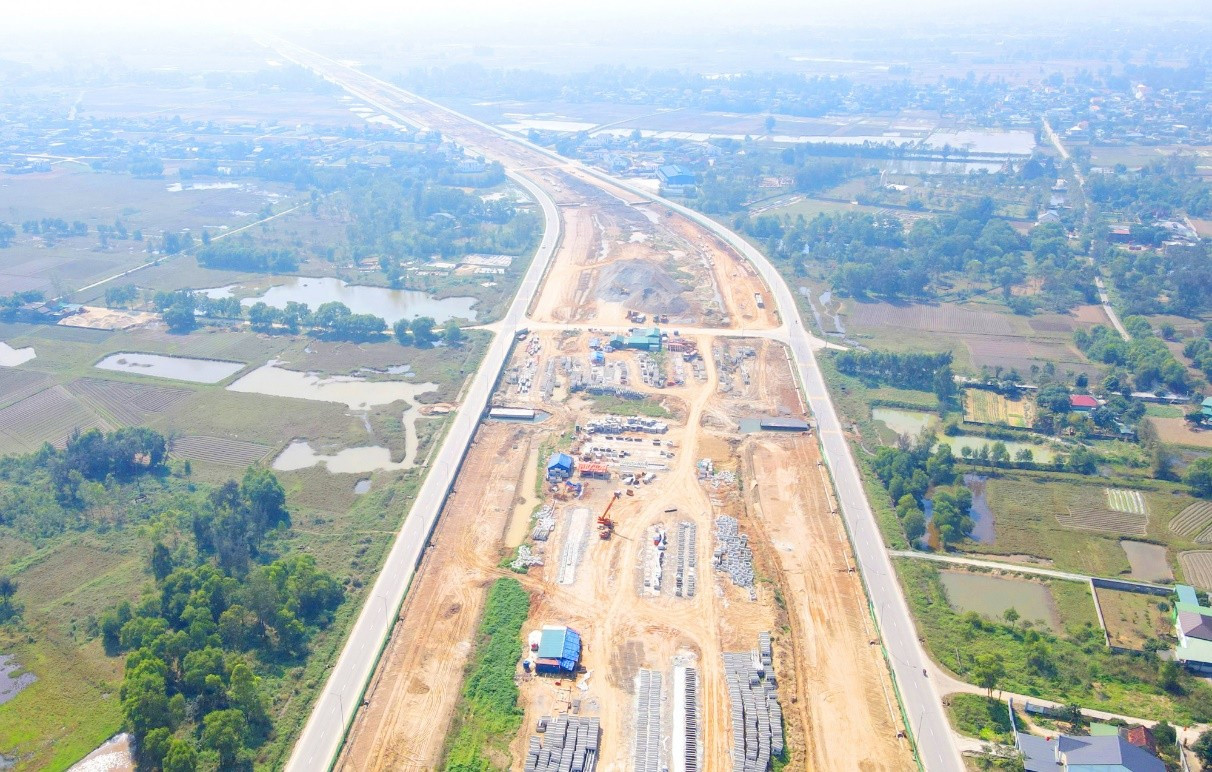 |
Vinh - Cua Lo Boulevard will become a "lifeline" route when Vinh City is officially expanded towards the sea. Photo: PV |
7. Prescribe higher tax rates for those who use large areas of land, many houses, speculate on land, are slow to use land, and leave land fallow. There are preferential policies on taxes, land use fees, and land rents for investment incentive areas; for poor households, ethnic minorities, families of people with meritorious services to the revolution, and localities that carry out the tasks of ensuring national food security and protecting forests.
8. Regarding land valuation, abolish the land price framework and have a mechanism and method to determine land prices according to market principles. Have a mechanism to improve the quality of land valuation work, ensure the independence of the land valuation council, the capacity of land valuation consultancy organizations, and the capacity and ethics of valuers.
9. For agricultural land, it is necessary to expand the subjects and limits of land use rights transfer associated with the conversion of occupations, jobs and labor in rural areas. Create favorable conditions for agricultural land users to convert the purpose of crop and livestock production, improving the efficiency of use. Develop mechanisms and policies to handle land originating from agricultural and forestry companies to hand over to local management and implement land allocation and land lease, giving priority to ethnic minorities lacking land, and at the same time preventing people from transferring land after being allocated.
10. Resolve land issues of state agencies, public service units, and production facilities that have moved out of urban centers to switch to economic development purposes when implementing the policy of rearranging the land fund in use.
11. It is necessary to clearly stipulate the management mechanism for the use of multi-purpose land, including land reserved for security and defense purposes being used for production and business purposes; residential land combined with trade and services; agricultural land combined with trade and services; land for tourism projects with spiritual elements; land used as places of worship, as headquarters of religious organizations associated with tourism business. Regulate the regime of land use for construction of overhead works, underground works, and land formed from reclaiming land from the sea.
12. Implement digital transformation in land management to continue administrative reform and improve the public service system in the land sector.
Looking back at all 12 general contents mentioned above of Resolution 18, it can be seen that the Resolution has set the task of innovating policies towards finding effective solutions to ensure benefits from land for people, encourage effective investment on land, save land resources and increase revenue from land value. When the revised Land Law fully codifies Resolution 18, it will create great development steps for the national economy and ensure high social and environmental sustainability.
Draft revised Land Law: Innovation unclear
During the past time, the National Assembly has organized a wide consultation with organizations and individuals on the Draft Law on Land Amendment, thereby receiving many opinions, mainly from experts and people knowledgeable about the law through seminars organized by state organizations, universities, research institutes, associations, non-governmental organizations, international development organizations, etc.
The Draft Law has introduced many innovations in agricultural land policy as required by Resolution 18, but it has only stopped at the form of rewriting the policy in bold in the Draft Law, without providing specific legal regulations. The regulation on expanding the scope of agricultural land transactions to non-agricultural people, but what to do to protect the lives of farmers when implementing land accumulation and concentration has not been clarified.
 |
Road project along the center of Quan Hanh town. Photo: Nguyen Hai |
Regarding the mechanism of the State reclaiming land for land allocation and land lease, this is the most important content that Resolution 18 requires clarification to make it suitable for life. The general opinion is not really satisfied with the Draft Law, believing that Resolution 18 has not been fully legalized. Many provisions of the Draft Law are not in line with the policy orientation, especially not satisfying the requirement to clarify the content of the land reclaiming mechanism for socio-economic development for national and public interests.
Resolution 18 clearly states that commercial housing projects and urban areas are not subject to the State land acquisition mechanism, and that urban and rural residential development and improvement projects must apply the mechanism of "contributing land use rights and readjusting land". The Draft Law has not clarified the content of the "contributing land and readjusting land" mechanism, which has been widely applied in many countries around the world. The provisions of the Draft Law also show "ambiguity" regarding the provisions on land transfer to implement commercial housing projects and urban area construction.
The Draft Law has some innovative provisions on compensation, support and resettlement mechanisms, but it has not really reflected the requirements of Resolution 18 that the lives of people whose land is recovered must be better than or equal to the situation before the land was recovered, that they can change their occupations, and that they are resettled in a way that suits their living conditions. The Draft Law has not yet resolved the concerns of people whose land is recovered when the total compensation and support money is not enough to buy a place to live in the resettlement area.
Many developing countries do not want to use the State land acquisition mechanism because when the compensation, support and resettlement plan is properly resolved, the land costs of the investment project will be too high. In Vietnam, they still prefer to use this mechanism, so they have to reduce the compensation, support and resettlement costs to be profitable.
 |
Panoramic view of Vinh city, Nghe An. Photo: Le Thang |
In the current situation, the disadvantage of implementing the State land acquisition mechanism is that people's complaints increase, and the disadvantage of implementing the self-negotiation mechanism is that project investors cannot negotiate with 100% of land owners. Other countries apply the consensus mechanism according to the majority of the community (at least 2/3) and when the project is approved, the land price increases. The mechanism of "contributing land use rights and readjusting land" is also based on the principle of this mechanism. Vietnam has not sincerely studied international experience to learn.
Regarding land valuation, the Draft Law does not have a detailed analysis of the innovation requirements of Resolution 18. The main mechanism is still to put responsibility on the Council, with the majority of members from the State sector, without any sign of land value according to market principles and the necessary independence of the Land Valuation Council.
Regarding land finance, the most important content is revenue from land value. Other countries are mainly interested in revenue from real estate tax and from increased land value due to investment. Resolution 18 also identifies the revenue sources that need attention as land use tax and differential land rent value created by investment projects (ie increased land value). Of course, real estate tax will be considered in a separate tax law. Increased land value due to investment projects has not been considered as a comprehensive policy, but only in the form of land development projects, also implemented according to the mechanism of the State reclaiming land areas with increased land value. Any policy will eventually return to the familiar way: the State reclaims land, unable to escape the rut that is too deep in the mindset.
Need to unlock the potential value in land resources
Ultimately, the Land Law at this time must unlock the potential value in land resources, and share that value fairly between the State, project investors and land users as required by Resolution 18, and should not just be stuck with the mindset of the State's power to reclaim land. It may be easy for investment projects to take land, but the State will face huge consequences in terms of losing the trust of the people.
Summarizing from the practice of land law enforcement, the sharing of benefits from land value over the past 20 years, since the 2003 Land Law, has always been in a state of inequality, people whose land is recovered by the State always suffer losses, the State also does not benefit, what everyone sees is that the number of tycoons formed from real estate investment projects is increasing and getting richer, the real estate market is constantly fluctuating.
The revised Land Law must adhere closely to the spirit of Resolution 18-NQ/TW, creating breakthrough economic development steps based on potential capital resources in land. In addition, social and environmental sustainability factors must be strictly ensured. Economic development that lacks social and environmental sustainability is like a magnificent castle built on sand, which will collapse in no time.

